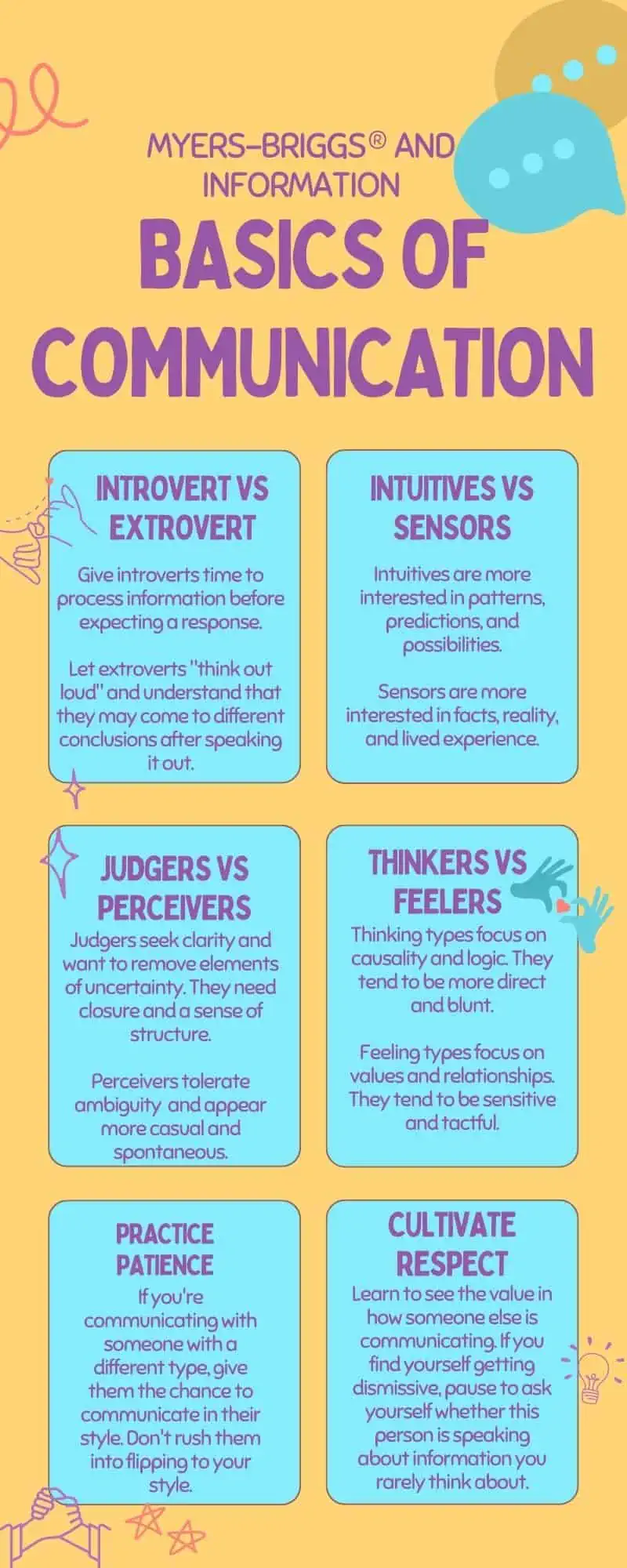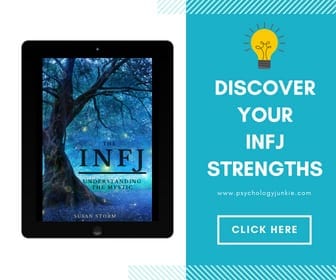Deep Questions for Each Myers-Briggs® Personality Type
Have you ever been with a friend and awkward silence filled the air for what seemed like an eternity? Do you find yourself wanting to get closer to people, but not being sure what to say? At times, in our earnest attempts to connect more deeply with those around us, we may find ourselves at a loss for words, struggling to bridge the gap that separates understanding. This can be especially challenging when our personality type is different from the person they are trying to understand. Today, we’re going to dive into the realm of Myers-Briggs®, a widely recognized personality categorization tool, to explore thought-provoking questions that each of the 16 personality types will find deeply engaging. The goal is to arm you with a means to foster intimacy, depth, and a greater understanding within your relationships or friendships. Let’s get started!
Not sure what your personality type is? Take our fun and in-depth personality questionnaire here. Or you can take the official MBTI® here.

Thought-Provoking and Deep Questions for Each of the 16 Myers-Briggs® Personality Types
The ISTJ
“What’s your favorite childhood memory?”
ISTJs love getting the chance to revisit the past and extract a particularly meaningful or pleasant memory. They glean meaning, life lessons, and wisdom from their previous experiences, often using them as guiding lights for the present and future. They love being able to soak in special memories and really revisit the sights, sounds, smells, tastes, feelings, and textures of a memory in-depth. Giving them the opportunity to do this is one way to really show you care and get closer to them.
Other good questions for ISTJs:
“What are your top three priorities?”
“What’s the most valuable lesson you learned from your parents?”
“If you could go back and tell 13-year-old one thing, what would it be?”
“When you look into the past, what do you miss the most?”
“What’s the best advice you’ve ever received?”
“What is your favorite place on earth?”
You might also enjoy: 10 Unique Qualities of the ISTJ, ISFJ, ESTJ, and ESFJ Personality Types
The ISFJ
“Tell me about a defining moment in your life.”
ISFJs often have crucial life moments that have shaped their character and life choices. This question invites them to share and reflect on an event or situation that has significantly impacted their lives. Being invited to share this moment from their past can make them feel cared about, listened to, and connected. Many ISFJs love the opportunity to revisit good or important memories. This could be a personal achievement, an emotional watershed or a significant life transition. Encouraging them to recount these personal stories can give you invaluable insight into their values, motivations, and personal growth journey.
Other good questions for ISFJs:
“What’s the most challenging situation you’ve overcome?”
“How would you like to be remembered?”
“What’s your favorite comfort activity when you’re feeling down?”
“When you look at the past, what do you miss most?”
“What’s the most sensible advice you’ve ever received?”
“What do you feel like most people don’t grasp about you?”
Find out more about ISFJs: 10 Amazing ISFJ Anime Characters
The ESTJ
“What are your top three priorities in life?”
ESTJs are always thinking about priorities. Their goals, plans, and objectives are frequently on their mind. Being invited to talk about them, and even rank them, is something they love! This question is a direct invitation for them to share the principles, goals, or people that hold the most importance in their lives. Whether it’s their career, family, or personal growth, this question enables them to articulate their focus and commitment. Engaging them in this discussion will give you invaluable insight into their values, motivations, and their strategic approach towards life.
Other good questions for ESTJs:
“What’s the biggest challenge you’ve faced in your career?”
“How do you define success?”
“How do you handle stress or conflict?”
“What’s the one decision you are most proud of?”
“What’s the best piece of advice you’ve ever received?”
“What is one thing you wish people understood better about you?”
The ESFJ
“What’s a small act of kindness that you were once shown that you’ll never forget?”
ESFJs have an inherent appreciation for the power of kindness and its impact on fostering harmony and unity among people. They love to remember pivotal moments from their pasts, especially ones that were steeped in kindness and harmony. This question invites them to re-live a memory where they were the recipient of a thoughtful gesture, and share the lasting impression it left on them. Whether it’s a comforting word in a time of distress or an unexpected helping hand, this question allows ESFJs to showcase their empathy, gratitude, and their deep-seated hope in the goodness of human nature.
Other good questions for ESFJs:
“What are the top three values you try to live by?”
“What does love mean to you?”
“If you could live one day of your life over again, what would it be?”
“If you could go back five years from now, what would you spend more time doing?”
“When was the last time you tried something new?”
The ISTP
“What would you do differently if you knew nobody would judge you?”
ISTPs are naturally skeptical, curious, and analytical. They are realists who have a natural drive to question the status quo or debate common beliefs from a logical perspective. However, societal norms and expectations can sometimes force them to suppress these aspects of themselves. This question gives them an opportunity to express those thoughts, ideas, or actions they might have restrained due to fear of judgment or misunderstanding. Delving into this area can provide a deeper understanding of their unique perspective, fostering a more intimate and genuine connection.
Other good questions for ISTPs:
“What’s the most challenging project you’ve ever worked on?”
“What do you think is the most admirable quality another person can have?”
“If you could go out to dinner with one person, alive or dead, who would you pick?”
“What do you want most in life?”
“What’s the most daring thing you’ve ever done?”
The ISFP
“What’s something most people don’t know about you?”
ISFPs are naturally private individuals who often hold back a part of themselves, choosing to reveal their depths gradually and only to those they trust deeply. This question invites them to share something that isn’t commonly known about them—a perspective, experience, or interest that they usually keep tucked away. This can be an enlightening and profound experience for both the questioner and the ISFP, as it provides a glimpse into their unique, often complex, inner world.
Other good questions for ISFPs:
“What’s the most rewarding experience you’ve ever had?”
“What’s the most spontaneous thing you’ve ever done?”
“What setting inspires you the most?”
“If you could go anywhere in the world, where would you go and why?”
“What’s one thing you wish people didn’t assume about you?”
You might also like: How ISFPs Say “I Love You”
The ESTP
“What’s something you’ve always wanted, since you were a kid?”
ESTPs are known for their adventurous spirit, zest for life, and quick humor. They are often driven by a sense of opportunity, adventure, and discovery. This question invites them to reflect on their lifelong desires, ones that started in childhood and have shaped their actions and decisions. Whether it’s a dream job, a thrilling adventure, or a coveted possession, this question gives them an opportunity to share a personal aspect of their lives. Understanding these deeply held desires can offer a unique perspective into their motivations, ambitions, and the essence of who they are as an ESTP.
Other good questions for ESTPs:
“What’s the most exciting adventure you’ve had?”
“What is your definition of a good life?”
“What is your biggest pet peeve?”
“What makes someone a hero?”
“What’s one thing you would do differently if you could go back in time?”
“If you could live in a video game, which one would you pick?”
The ESFP
“What are the primary components of a happy life?”
ESFPs have a restless urge to experience all the adventure, beauty, and opportunity in life. This question gives them an opportunity to share their unique perspectives on what constitutes a fulfilling and contented life. As lovers of experiences and strong advocates for living in the present, their answer may likely revolve around personal relationships, shared joy, authentic experiences, or the pursuit of passions. They’ll love being able to share what really matters to them on a fundamental level and to be heard in this way.
Other good questions for ESFPs:
“What’s the most memorable experience you’ve had?”
“Who has been the most influential person in your life and why?”
“What’s one thing you would like people to remember about you?”
“What’s a hobby you always wanted to try but haven’t yet?”
“If you could have one superpower, what would it be and why?”
The INTJ
“What do you see when you imagine the future?”
INTJs are known for their strategic, forward-thinking minds. They often have a detailed vision of what they want their future to look like and can plan meticulously to make that vision a reality. This question invites them to share their long-term goals, aspirations, and the imagined world they construct in their minds. Whether it’s a personal ambition, a technological advance, or a societal shift, this question gives them an opportunity to demonstrate their insightful, visionary nature. Understanding these future visions can offer a unique perspective into their motivations, ambitions, and the essence of who they are as an INTJ.
Other good questions for INTJs:
“What is a misconception people often have about you?”
“What book has had the greatest influence on your life?”
“What’s the most valuable lesson you’ve learnt from a mistake?”
“What do you think constitutes a meaningful life?”
“What type of person angers you the most?”
“What is your greatest strength and your greatest weakness?”
You might also enjoy: 12 Stress-Busting Techniques for INTJs
The INFJ
“If you could change one thing about the world, what would it be?”
INFJs, known for their idealistic nature and deep sense of compassion, often have profound insights into societal issues and the human condition. This question taps into their visionary mentality by inviting them to share their perspectives on what they perceive as the most significant flaw in the world, and how they wish it could be different. Whether their answer relates to social justice, environmental preservation, or human empathy, this question provides them a platform to express their core values and their hope for a better world. Understanding their answer can give a unique insight into their altruistic motivations and the core of who they are as an INFJ.
Other good questions for INFJs:
“What book has impacted you the most and why?”
“What’s one thing you wish you could tell your younger self?”
“In your opinion, what is the true measure of success?”
“What do people misunderstand about you?”
“What do you think about when you lie awake in bed at night?”
“Have you ever had a prophetic dream or a gut feeling that later turned out to be true?”
“What do you think love really is? And how do you feel like people misrepresent it?”
Want to know more about INFJs? 12 Amazing Fictional INFJ Characters
The ENTJ
“What would you do if you had only five years left to live?”
ENTJs are known for their strategic mindset, decisiveness, and high aspirations. This question encourages them to contemplate on a more emotional, personal level, focusing on what truly matters to them. It challenges them to break down their life into a finite time, prioritizing their most important goals and desires. Whether their answer involves achieving a longtime career goal, traveling the world, or spending time with loved ones, this question gives them an opportunity to reflect on their life’s priorities outside their usual action-oriented, goal-focused mentality. Understanding their response can give a unique insight into their personal values and the deeper causes that drive them.
Other good questions for ENTJs:
“What is a common misconception people have about you?”
“Who has been the most influential person in your life?”
“What is your definition of success?”
“What’s the most challenging decision you’ve had to make?”
“If you could meet anyone from history, who would it be and why?”
The ENFJ
“Beyond the titles that others have given you, who are you?”
ENFJs are often recognized for their charisma, social prowess, and ability to inspire and motivate others. They are the natural-born leaders who people turn to for guidance and support. But beneath the surface, there’s an introspective side to ENFJs that often goes unseen. This question invites them to share who they are beyond the roles they play in society and the expectations that others place upon them. It’s an opportunity to express their quieter moments, their thoughts, feelings, aspirations, and the person they see themselves as when all the noise fades away. Understanding their answer to this question can give a unique insight into their inner world and the truth of who they are as an ENFJ.
Other good questions for ENFJs:
“What is the most important lesson you’ve learned in life?”
“What makes a person beautiful?”
“How are you pursuing your dreams right now?”
“Who has been the most influential person in your life and why?”
“What’s one thing you wish people understood better about you?”
“What’s a significant personal goal you’ve set for yourself?”
The INTP
“What do you want more of in your life?”
INTPs are renowned for their creative and analytical minds, often pursuing knowledge for its own sake and exploring theoretical concepts. This question invites them to reflect on their current life situation and consider what they desire more. Whether it’s more time for personal projects, deeper connections with people, or opportunities for intellectual pursuits, this question allows them to express their intrinsic needs and desires. By understanding their responses, we can gain a unique insight into their individual priorities, values, and the essence of who they are as individuals.
Other good questions for INTPs:
“If you could live forever, would you want to? Why?”
“What’s the most interesting thing you’ve learned this week?”
“What is your biggest pet peeve?”
“What is something you’ve always wanted to learn but haven’t gotten around to?”
“If you could solve one mystery in the world, what would it be?”
“How do you handle stress and uncertainty?”
Want to know more about INTPs? 24 Signs That You’re an INTP, the Prodigy Personality Type
The INFP
“What fictional character do you relate to the most and why?”
INFPs are renowned for their vivid imagination and deep emotional introspection, often finding solace and connection in stories both written and visual. Their imaginative nature and penchant for storytelling make them particularly drawn to fictional characters, finding parallels between the characters’ journeys and their own personal experiences. This question invites them to delve into their favorite narratives and identify with a character that resonates with their inner world. Whether it’s a heroic protagonist who stands up for their values, a misunderstood outsider, or a complex character navigating the intricacies of relationships and self-discovery, this question provides an opportunity for INFPs to express their self-perceptions and aspirations. Understanding their answer can give a unique insight into their empathetic nature, idealistic dreams, and core values.
Other good questions for INFPs:
“What story does your inner world tell?”
“What is something that people often misunderstand about you?”
“What is a cause that is close to your heart?”
“What is your favorite song and why?”
“What do you think constitutes a meaningful life?”
“What fantasy world would you go and live in if you could?”
“When do you feel most like yourself?”
Discover more about INFPs: Dealing with Emotional Overwhelm as an INFP
The ENTP
“What could society do without?”
ENTPs are renowned for their innovative thinking, quick wit, and ability to see possibilities others don’t. They often question established norms and enjoy challenging the status quo. This question invites them to share their unique insights on societal structures, practices, or norms that they believe are unnecessary or could be improved. Whether their answer focuses on something tangible like a technology or system, or something abstract like a mindset or ideology, it provides an opportunity for ENTPs to express their forward-thinking ideas and potential solutions. Understanding their answer can give a unique insight into their visionary thinking, reformative spirit, and unique individual perspectives.
Other good questions for ENTPs:
“What’s a belief you once held but now you’ve changed your mind on?”
“What do you think are the most exciting ideas or developments in your field?”
“Who or what inspires you to think outside the box?”
“What’s a common misconception people have about you?”
“What do you think is the most overrated virtue?”
“How do you define personal growth and what steps are you taking towards it?”
Discover more about ENTPs: 10 Must-Read Books for ENTPs
The ENFP
“What’s something new you’ve discovered about yourself recently?”
ENFPs are known for their curiosity, enthusiasm, and rich inner lives. They are explorers of the external world as much as they are of their own selves. This question invites them to share their recent self-discoveries. Whether it’s a newfound passion, a shift in belief, a surprising strength, or a previously uncharted area of personal growth, this question allows them to reflect on their evolving self-understanding. By understanding their responses, we can gain a unique insight into their introspective journey, their values, and who they are outside of who they present themselves to be.
Other good questions for ENFPs:
“If you could change one thing in the world, what would it be and why?”
“What’s a dream you’ve had that you’ve yet to pursue?”
“How do you reignite your spark when you feel burnt out?”
“What is a popular trend that you just don’t understand or agree with?”
“What would you do if you knew you couldn’t fail?”
“What does freedom mean to you?”
“What’s an unconventional wisdom you swear by?”
Find out more about ENFPs: The Dark Side of the ENFP Personality Type
What Are Your Thoughts?
We’d love to hear your thoughts on this piece. Are there any thought-provoking questions that resonate with your personality type from our list? Do you have any other questions you particularly love to ask or be asked? Remember, these questions are not just for introspection, but also for sparking meaningful conversations with others. Don’t hesitate to share your insights, ideas, or even pose your own questions in the comments below.
Subscribe to Our Newsletter

Want to discover more about personality type? Get the inside scoop with Susan Storm on all things typological, along with special subscriber freebies, and discounts on new eBooks and courses! Join our newsletter today!














Great post! 👍 Reminds me of a campfire game my church YA group played one fateful night…
I had written out random questions and we each drew one out of a hat. It was an auditory journey to hear the INTJ grapple with whether they would want to know the time and circumstances of their death…… The ISFP told an emotional story about a life-chaging moment that none of us had ever heard before, probably because we never asked……The ENFP gave a long-winded answer to a question I can no longer remember, because by the time they were through talking they had wandered so far from the actual question that nobody remembered what they were supposed to be answering in the first place.
But The Good Lord rewarded our patience when we made our way around to the friendly neighborhood ESFP youth pastor, and found that he had drawn “What was your worst experience in a public restroom?” 30 minutes of eye-watering hilarity ensued. We all started to wonder if he had ever pooped normally in his entire life. By the end of the second story his very sweet ESFJ wife was displaying a mixture of amusement and horrified embarrassment, trending more towards the latter but her husband was just getting warmed up. Pooping in a river, pooping on the same throne with a sibling because neither of them could wait for a vacancy, food poisoning, an ill-conceived flatulence competition that did not end according to plan……
Our group still talks about that night, some from a place of healing and others from a place of trauma. But we definitely talk about it. And now I have some new great questions to add to the mix thanks to this article! 😊
Very interesting . As an INFP, I certainly ask myself these questions.
But I would be uncomfortable revealing this info to someone unless we are already very trusted friends. This stuff is too private!
On the other hand, I would love to discuss philosophy, big-picture ideas in politics, religions, spirituality, state of the world, psychology, even future of technology and AI. Not too personal about me but telling the other person about my values and what makes me tick.
I loved journaling about these questions :).